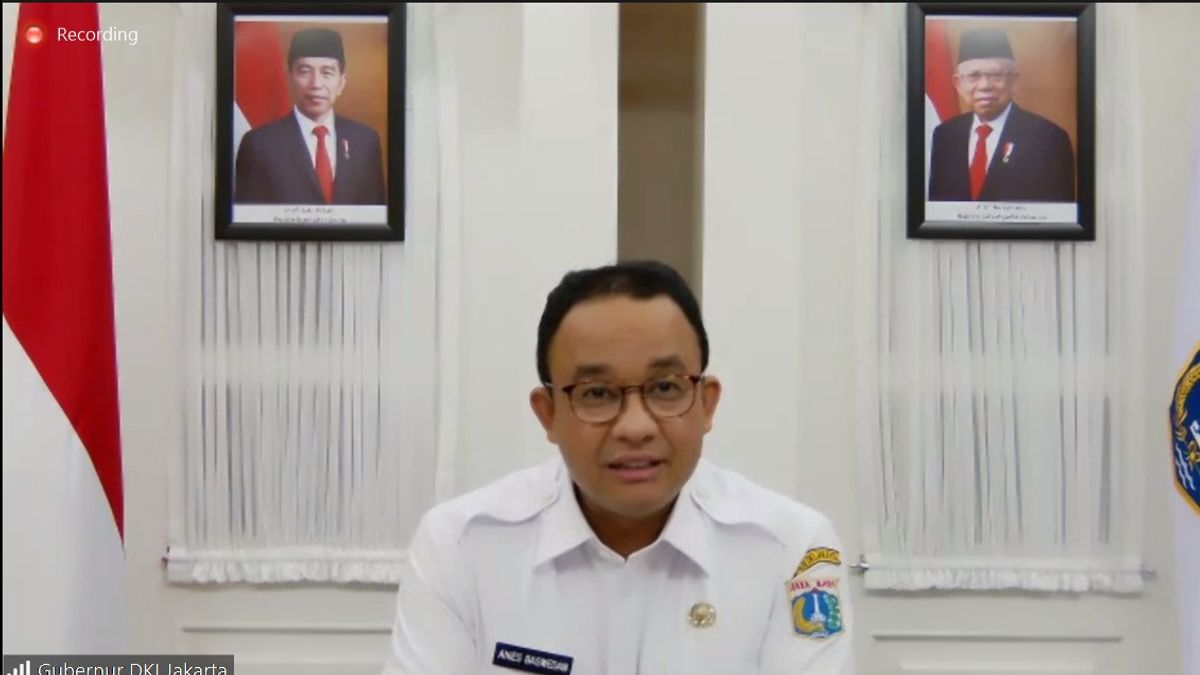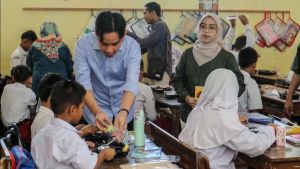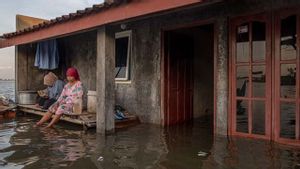JAKARTA - DKI Jakarta Governor Anies Baswedan asked the DKI Provincial Government, including Bank DKI, to prepare credit facilities and relaxation for micro, small and medium enterprises (MSMEs) affected by COVID-19.
Anies said, the COVID-19 pandemic had resulted in a critical economic condition for the community. In fact, this is even worse than the situation in the monetary crisis in 1998, where the micro business sector was still the backbone of the economy when the large economic sector was paralyzed.
"Now the micro sector is heavily impacted. Our challenge at this point is how we can provide business policy packages such as credit facilities. This breakthrough can be raised and we prepare the regulatory aspects," said Anies in a virtual discussion, Tuesday, July 22.
In general, Anies explained that efforts to facilitate credit facilities at MSMEs that can be done are granting permits to assisting in making NPWP (Taxpayer User Numbers) for business actors.
The administrative process must be fulfilled because it is a requirement for applying for business capital credit from Bank DKI, as a Regional-Owned Enterprise (BUMD) engaged in banking.
Anies hopes that business actors and economic observers can provide input to restore economic contraction in the medium term, not just in the short term.
"Hopefully the ideas that will emerge can be used as a guide for formulating policies in Jakarta. Because Jakarta is the most connected to the global world. Like it or not, it will face a global situation which is currently difficult," said Anies.
Credit relaxation stagesLeader of the DKI Bank UMK Credit Group Wahyudi Dwi Irawan said that his party had arranged the stages of implementing the credit stimulus for MSME players. This policy is based on OJK Regulation Number 11 / POJK.03 / 2020 concerning National Economic Stimulus as a Countercyclical Policy on the Impact of the Spread of COVID-19.
First, Bank DKI checks its loan portfolio. Second, mapping the affected business sectors. Then, Bank DKI identifies debtors affected by the COVID-19 pandemic. This identification is done by picking up the ball.
"We ask all Bank DKI personnel to actively contact the debtors, not wait for them to report to us. We ask about the condition of his business and his family, whether it is safe from a pandemic or not," said Wahyudi.
Then, Bank DKI compiled a scenario for implementing credit relaxation by analyzing the implications of COVID-19. Furthermore, socializing and communicating with employees before serving credit relaxation to affected debtors.
"For our debtors who are currently being given relaxation, they can still access capital when their conditions return to normal, they can ask for additional credit from us to drive the economic sector," said Wahyudi.
The English, Chinese, Japanese, Arabic, and French versions are automatically generated by the AI. So there may still be inaccuracies in translating, please always see Indonesian as our main language. (system supported by DigitalSiber.id)













